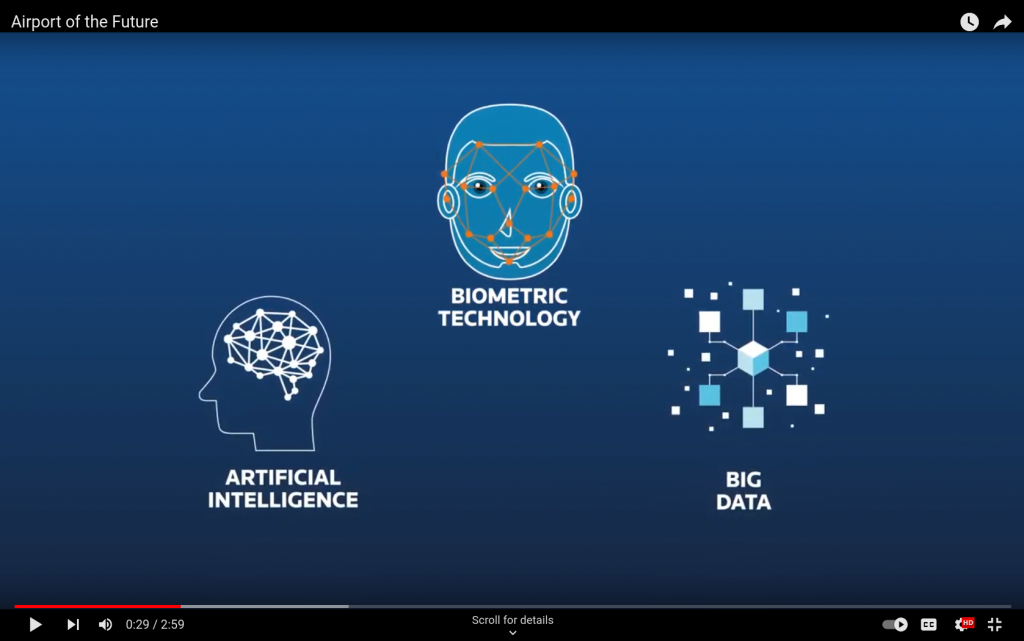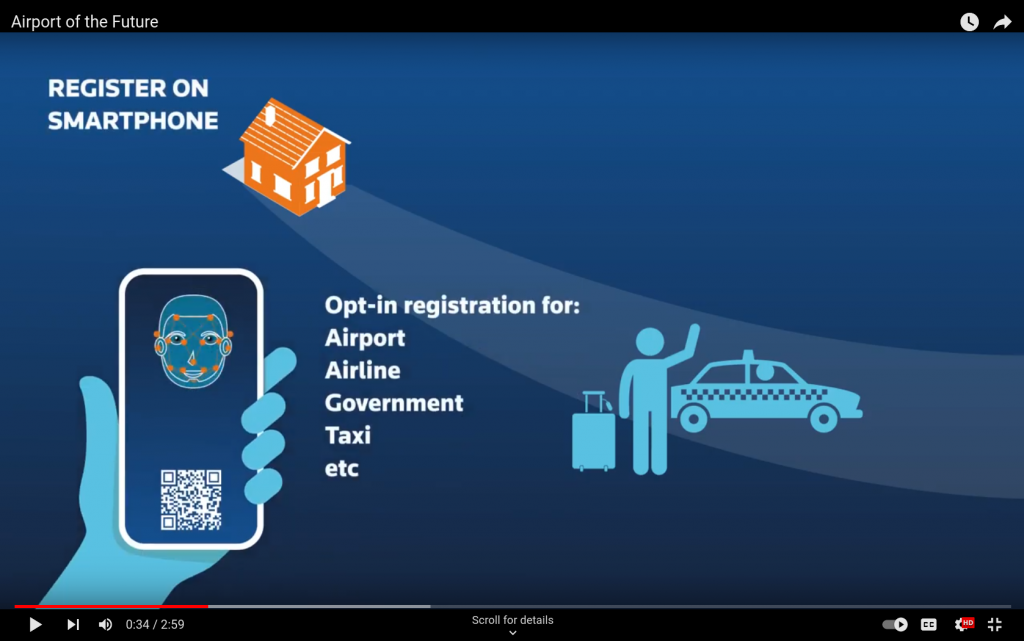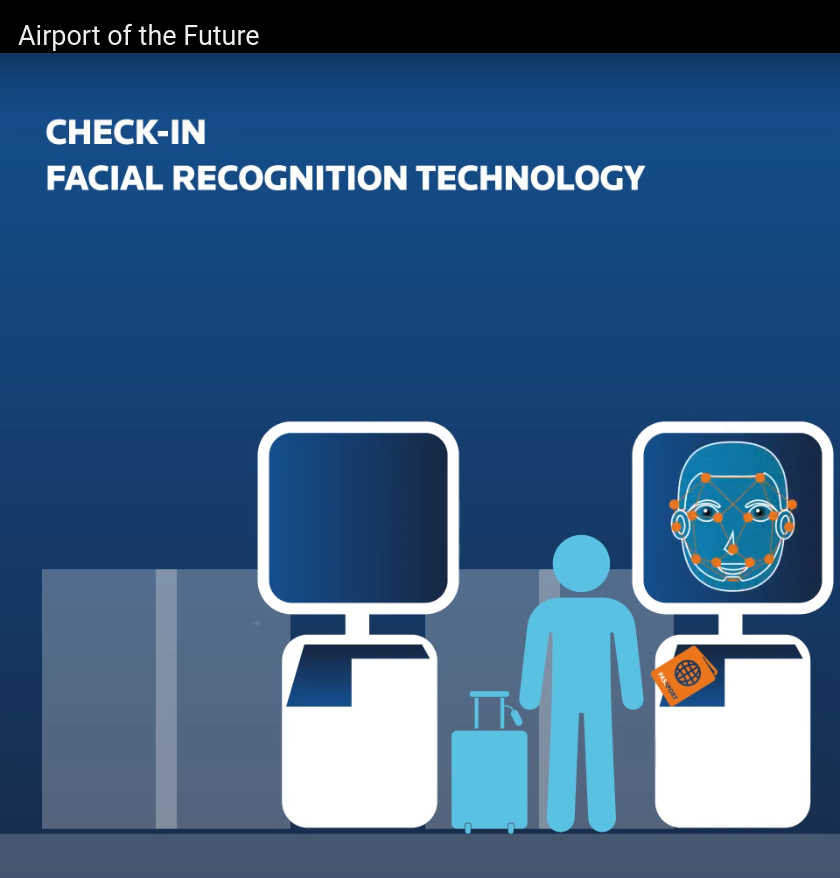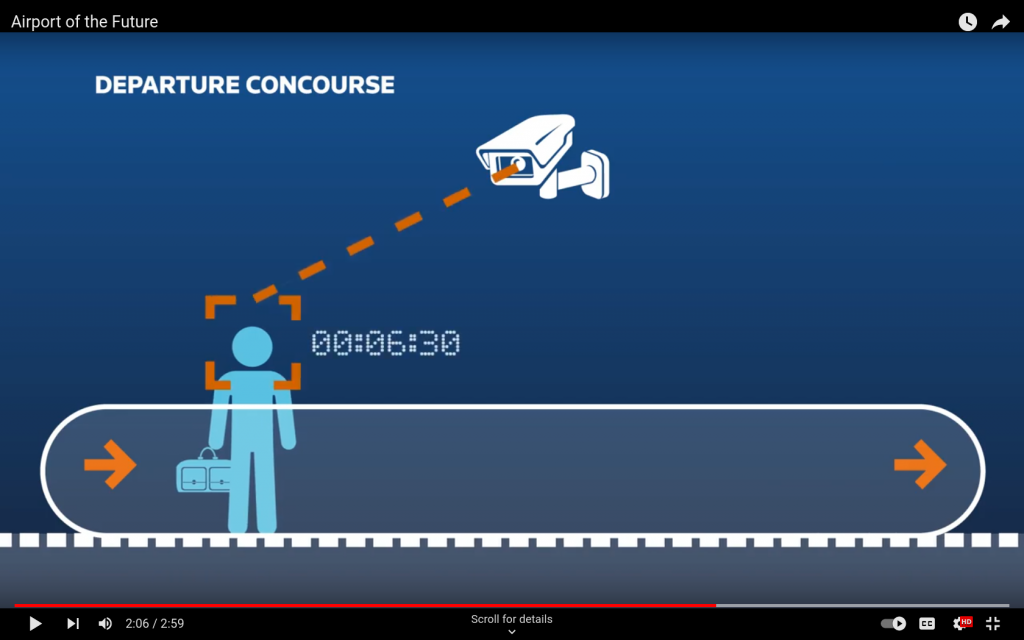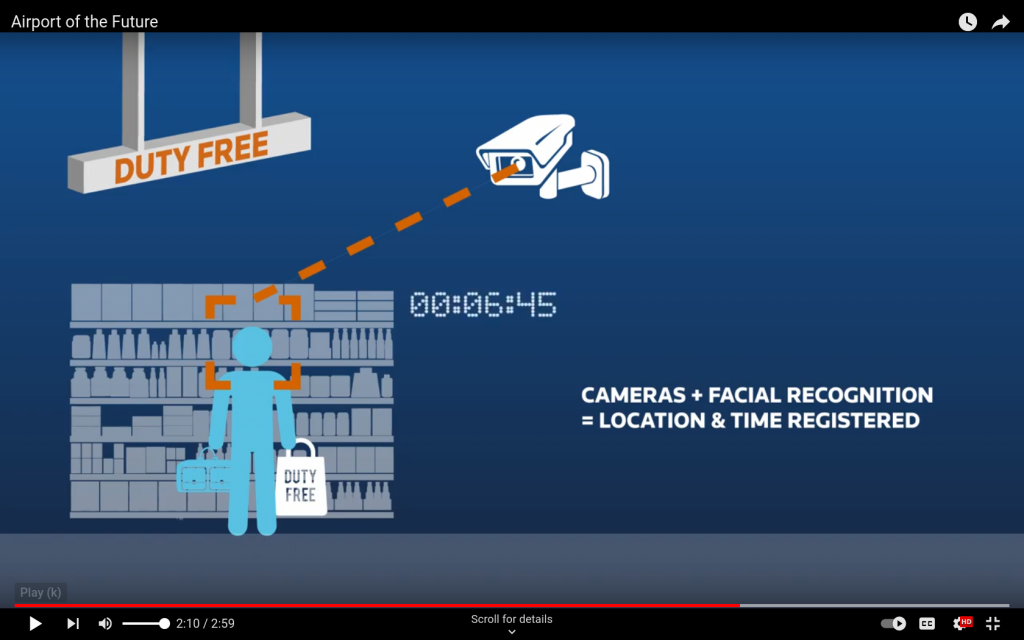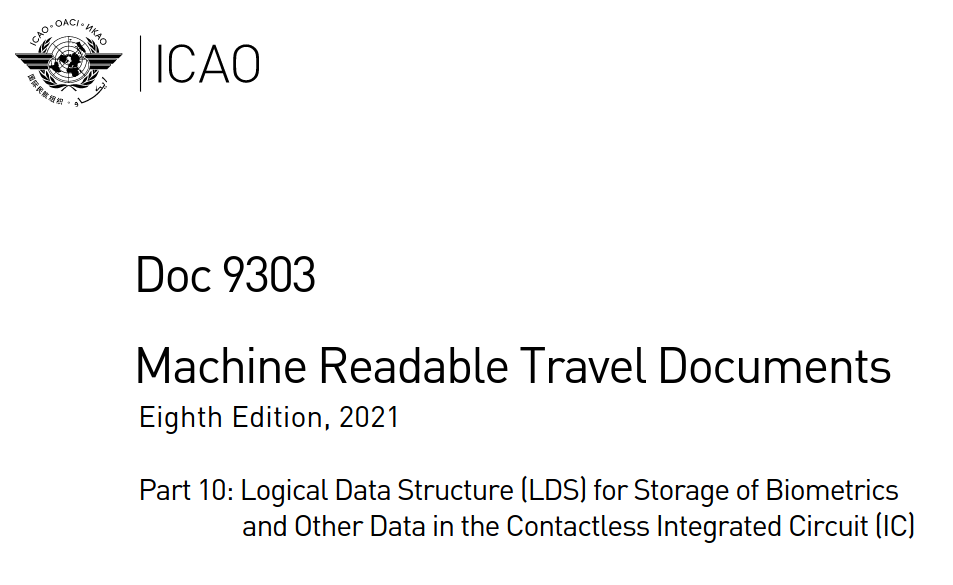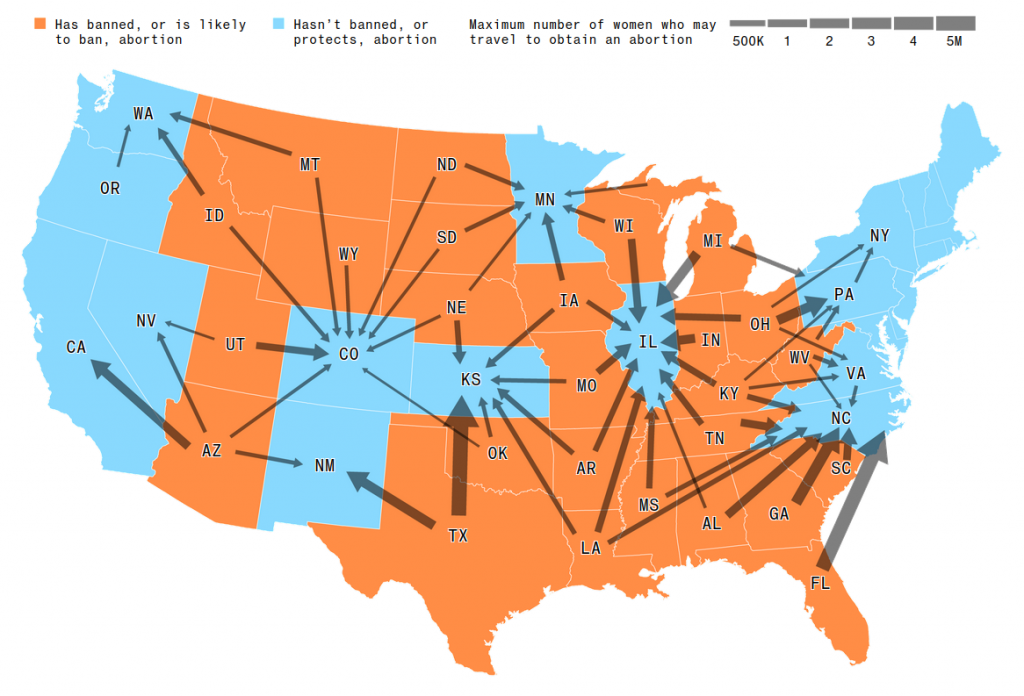The airport of the future is the airport of today — and that’s not good.
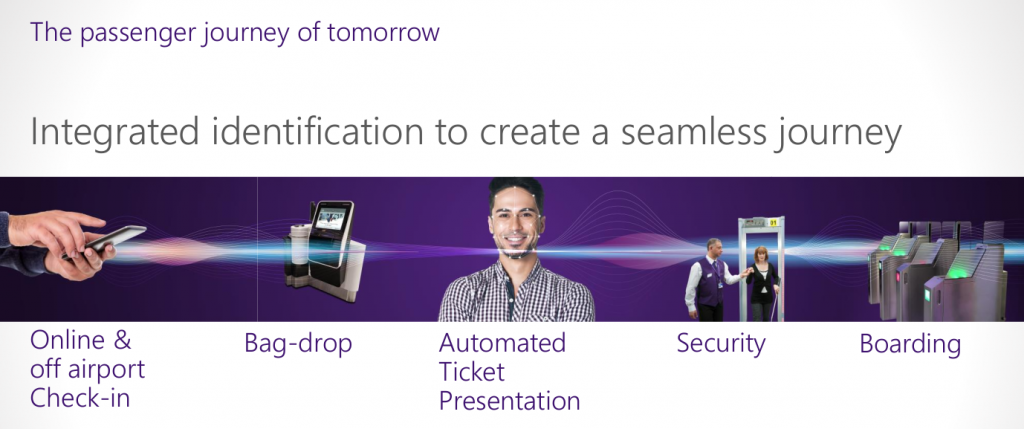 [Facial recognition at each step in airline passenger processing. Slide from presentation by Heathrow Airport Holdings Ltd. to the International Civil Aviation Organization (ICAO) Traveler Identitification Program symposium, October 2018]
[Facial recognition at each step in airline passenger processing. Slide from presentation by Heathrow Airport Holdings Ltd. to the International Civil Aviation Organization (ICAO) Traveler Identitification Program symposium, October 2018]
Today, the day before Thanksgiving, will probably be the busiest day for air travel in the USA since the outbreak of the COVID-19 pandemic in early 2020.
If you are flying this week for the first time in three years, what will you see that has changed?
Unfortunately, many of the most significant changes made during the pandemic are deliberately invisible — which is part of what makes them so evil.
During the pandemic, largely unnoticed, the dystopian surveillance-by design airport of the future that we’ve been worried and warning about for many years has become, in many places, the airport of today.
While travelers were sheltering in place during the COVID-19 pandemic, airports have taken advantage of the opportunity to move ahead with expansion and renovation projects. While passenger traffic was reduced, and terminals and other airport facilities were operating well below capacity, disruptions due to construction could be minimized.
A characteristic feature of almost all new or newly-renovated major airports in the U.S. and around the world is that they are designed and built on the assumption that all passengers’ movements within the airport will be tracked at all times, and that all phases of “passenger processing” will be carried out automatically using facial recognition, as shown in this video from a technology vendor, Airport of the Future:
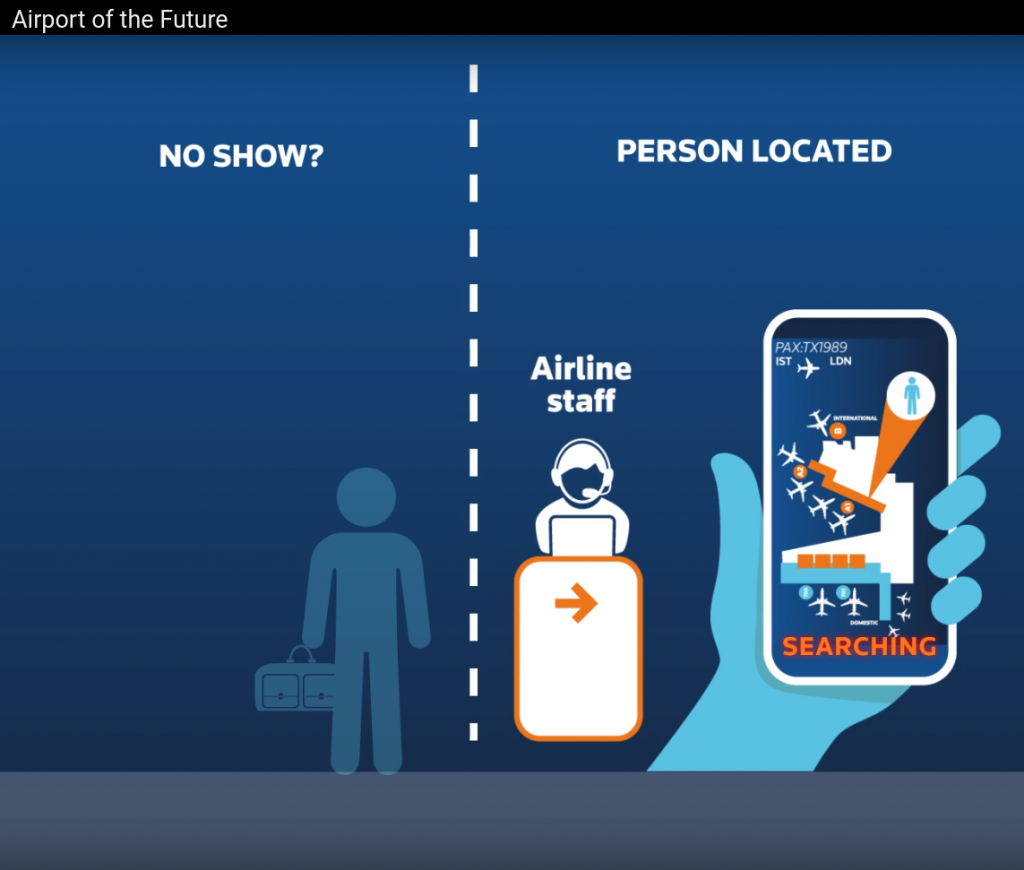 [Stills from 2019 vendor video, Airport of the Future.]
[Stills from 2019 vendor video, Airport of the Future.]
In the airport of the future, or in a growing number of present-day airports, there’s no need for a government agency or airline that wants to use facial recognition to install cameras or data links for that purpose. As in the new International Arrivals Facility at Sea-Tac Airport, which opened this year, the cameras and connectivity are built into the facility as “common-use” public-private infrastructure shared by airlines, government agencies, and the operator of the airport — whether that’s a public agency (as with almost all U.S. airports) or a private company (as with many foreign airports).
